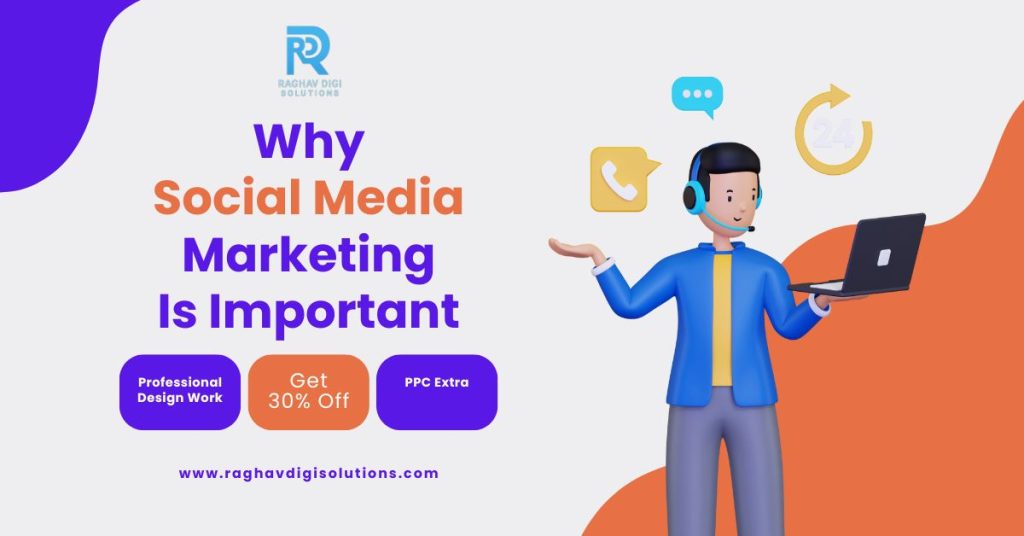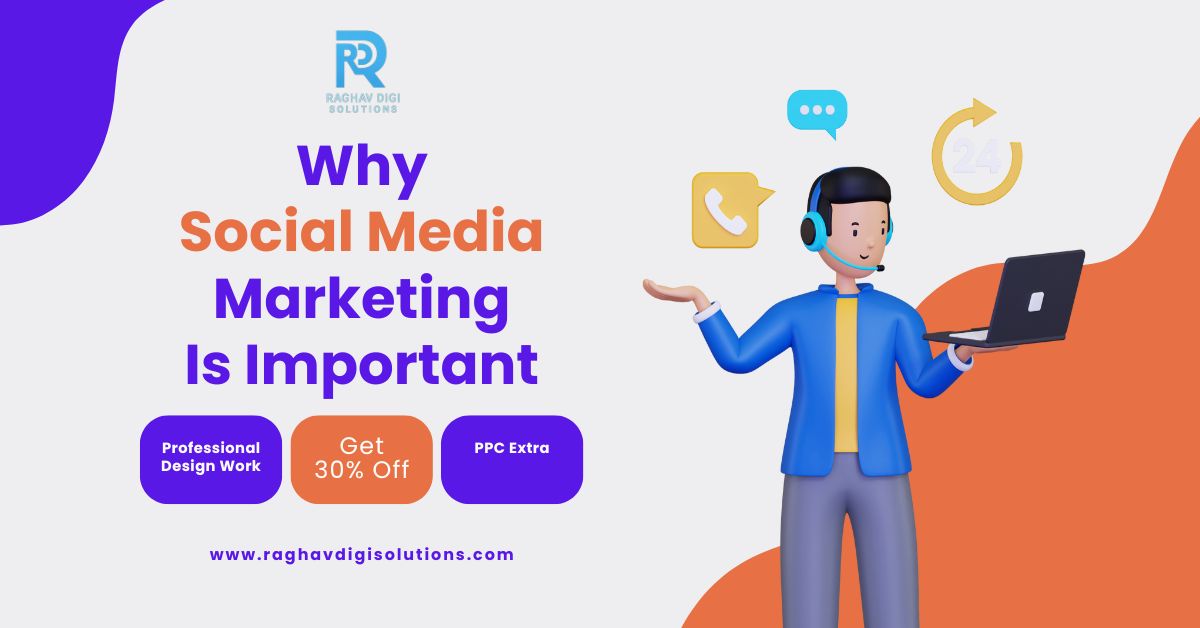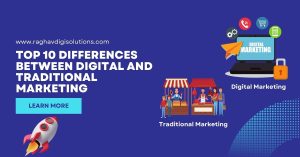In today’s digital-first world, businesses cannot ignore the power of social media. With more than 5 billion active social media users worldwide (Statista, 2025), platforms like Facebook, Instagram, LinkedIn, and TikTok have revolutionized how brands connect with their audiences. Whether you run a small local shop or a global enterprise, social media marketing (SMM) has become a necessity, not a luxury.
But why exactly is it so important? This article provides a complete and updated guide on the importance of social media marketing, its benefits, strategies, and real-life impact on businesses.
What is Social Media Marketing?
Social media marketing (SMM) refers to the process of promoting products, services, or brand messages through social platforms like Facebook, Instagram, Twitter (X), LinkedIn, YouTube, and TikTok. Unlike traditional marketing, social media allows two-way communication, real-time engagement, and targeted content delivery.
It involves several activities:
- Creating and sharing content (posts, videos, stories, reels).
- Running paid advertising campaigns.
- Engaging with followers through comments and direct messages.
- Tracking and analyzing performance metrics.
Why Social Media Marketing is Crucial in 2025
1. Massive Global Reach
More than half of the world’s population uses social media. Whether your audience is teenagers on TikTok or working professionals on LinkedIn, platforms bring your business closer to people who matter most.
- Facebook – Over 3 billion monthly active users.
- Instagram – Over 2.4 billion users, dominated by Gen Z & Millennials.
- LinkedIn – 1 billion professionals seeking business solutions.
- TikTok – 1.6 billion users, with explosive brand engagement potential.
This reach is unmatched compared to TV, radio, or print.
2. Cost-Effective Marketing
Social media allows businesses to grow organically (free) or through highly targeted paid campaigns. Compared to traditional advertising, social media ads are far cheaper and provide advanced targeting options such as:
- Age, gender, and demographics.
- Location-based targeting.
- Interests, behaviors, and even device usage.
Even startups with limited budgets can compete with industry leaders by applying the right content and engagement strategies.
3. Builds Brand Awareness and Recognition
Your potential customers must first recognize and recall your brand before buying from you. Social media offers a digital stage to keep your brand constantly in front of your audience.
Regular posting combined with consistent branding (color schemes, tone of voice, logo) helps create strong brand recall. A study by Sprout Social suggests that 77% of consumers prefer buying from brands they follow on social media.
4. Enhances Customer Engagement
Social media is not just about broadcasting messages – it’s about interaction. Brands now build relationships, not just sales funnels. Engagement comes via:
- Comments, likes, and shares.
- Polls, Q&A sessions, and live videos.
- Responding to customer queries in real time.
Higher engagement = more trust, loyalty, and conversions.
5. Drives Website Traffic and SEO Benefits
Social media acts as a gateway to your website. When followers see your product posts or blog updates, they are directed to your landing pages. While social media itself doesn’t directly boost Google rankings, increased referral traffic signals authority to search engines.
Additionally, videos, infographics, and blog links shared across platforms help build backlinks and brand exposure – key SEO factors.
6. Supports Lead Generation and Conversions
Social media is no longer just for awareness – it directly drives sales. Features like:
- Instagram Shopping & Facebook Shops
- LinkedIn Lead Gen Forms
- TikTok Shop integration
…allow users to make purchases without leaving the app. A well-optimized funnel converts followers into paying customers.
7. Builds Trust and Social Proof
Today’s customers trust peer recommendations and real experiences more than glossy advertisements. User-generated content (UGC), online reviews, and influencer collaborations help brands create authenticity.
Statistics show 90% of customers say authenticity influences their buying decisions. Positive reviews and customer engagement on social platforms become trust-building assets.
8. Keeps You Ahead of Competitors
In competitive industries, having an active social presence is crucial. Businesses that remain inactive risk losing customers to more active competitors. Being visible where your audience spends their time ensures that you remain relevant and competitive.
9. Offers Real-Time Market Insights
Every like, comment, and click gives valuable data on your audience’s preferences. Social platforms provide analytics dashboards that help businesses:
- Identify which content performs best.
- Study audience demographics.
- Adjust campaigns for better ROI.
This insight was difficult to achieve through earlier marketing methods.
10. Essential for Crisis Communication and Reputation Management
When negative news or criticism arises, social media acts as a communication lifeline. Brands can quickly issue clarifications, apologize, or address concerns before they escalate. Companies that respond swiftly win back customer trust faster.
Expert Strategies for Effective Social Media Marketing
To maximize impact, here are proven strategies businesses use:
✅ Define Clear Goals
- Increase brand awareness
- Boost website traffic
- Generate leads and conversions
- Improve customer engagement
✅ Know Your Audience
Use analytics tools to understand demographics, buying patterns, and preferences.
✅ Create High-Quality Content
Content pillars include:
- Informative blogs and infographics
- Entertaining short videos & reels
- Educational webinars & LinkedIn posts
- Emotional storytelling campaigns
✅ Leverage Paid Ads
- Use retargeting ads to reach interested customers.
- A/B test ad creatives for better performance.
✅ Collaborate with Influencers
Partner with niche influencers who align with your brand values. This avoids wasted investment and builds credibility.
✅ Monitor & Adapt
Regularly track analytics and adjust strategies. Marketing success lies in continuous optimization.
Real-Life Example of Success
- Nike & Instagram Reels: Nike uses Reels not just for product launches but also for motivational content. This has created a global community of fitness enthusiasts around their brand.
- Zomato India & Twitter (X): With witty one-liners and real-time trend engagement, Zomato has become a social media phenomenon in India.
These examples show that creativity + consistency = social media dominance.
Common Myths About Social Media Marketing
- Myth 1: It only works for big brands.
Truth: Small businesses often see faster results because of niche targeting. - Myth 2: Posting more = better results.
Truth: Quality and relevance matter more than quantity. - Myth 3: It’s free.
Truth: While organic posting is free, achieving real growth often requires ad investments.
Future of Social Media Marketing (2025 and Beyond)
- AI & Automation – Chatbots and predictive analytics for personalized user journeys.
- Short-Form Videos – Platforms like TikTok, Instagram Reels, and YouTube Shorts will dominate.
- Social Commerce – Direct purchasing via social media will replace standalone e-commerce for many small businesses.
- AR/VR Marketing – Virtual experiences via Meta and AR filters will enhance engagement.
- Hyper-Personalization – Brands will deliver unique content to micro-segments.
FAQs on Social Media Marketing
Q1. How often should a business post on social media?
Posting 3–5 times a week is ideal, but consistency is key. Quality always beats quantity.
Q2. Is social media marketing better than SEO?
Both are complementary. SEO ensures long-term search visibility, while SMM delivers instant reach, engagement, and conversions.
Q3. Which platform is best for B2B marketing?
LinkedIn is the most effective for B2B lead generation and business networking.
Q4. Can paid ads guarantee success?
Not alone. Ads must combine with strong content and targeting to be successful.
Q5. Is influencer marketing still effective?
Yes, when you collaborate with authentic, niche influencers instead of celebrities.
Conclusion
Social media marketing is no longer optional; it is the backbone of modern business success. It builds awareness, drives traffic, generates leads, and nurtures customer trust. Whether you’re a small startup in Agra or a multinational brand, the way you manage your social presence can define your growth trajectory in 2025 and beyond.
Businesses that leverage data-driven strategies, create authentic content, and engage actively will always stay ahead.
To Know More Follow: Best Digital Marketing Company In Agra, Seo Expert In Agra





